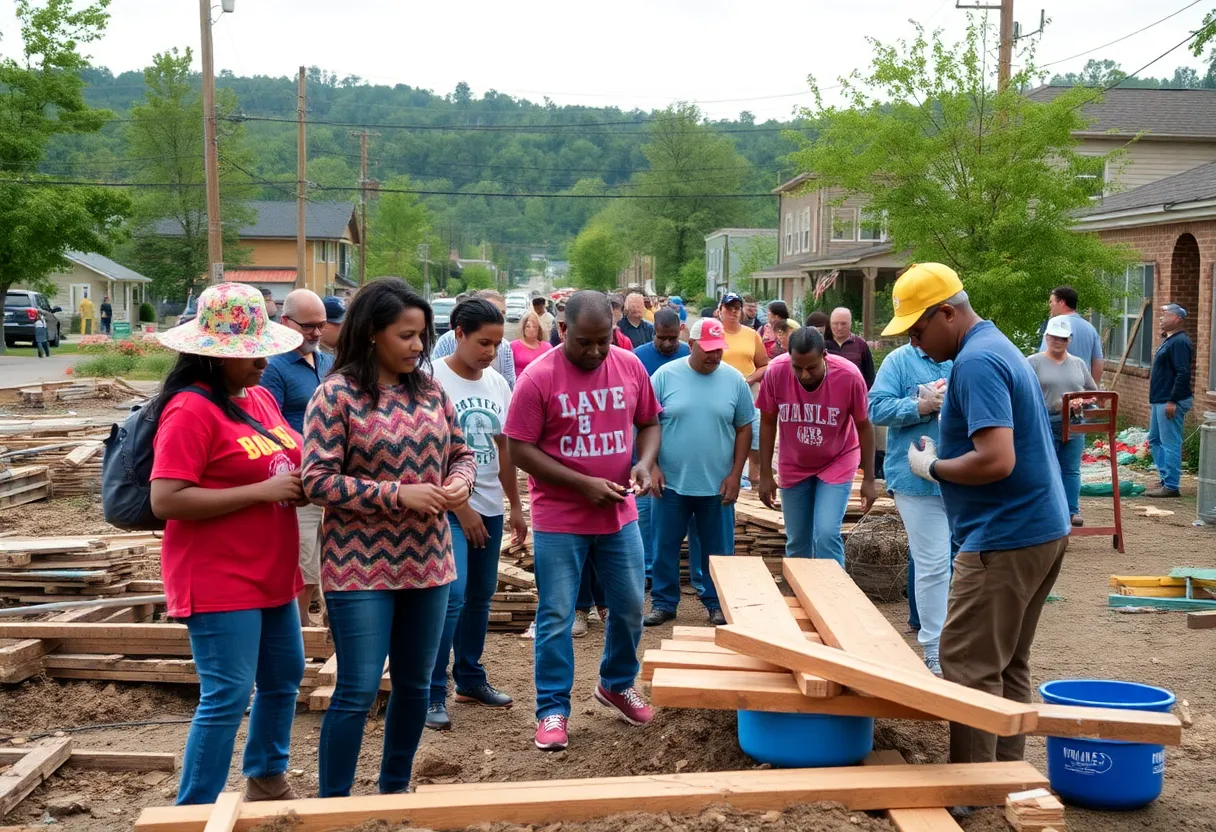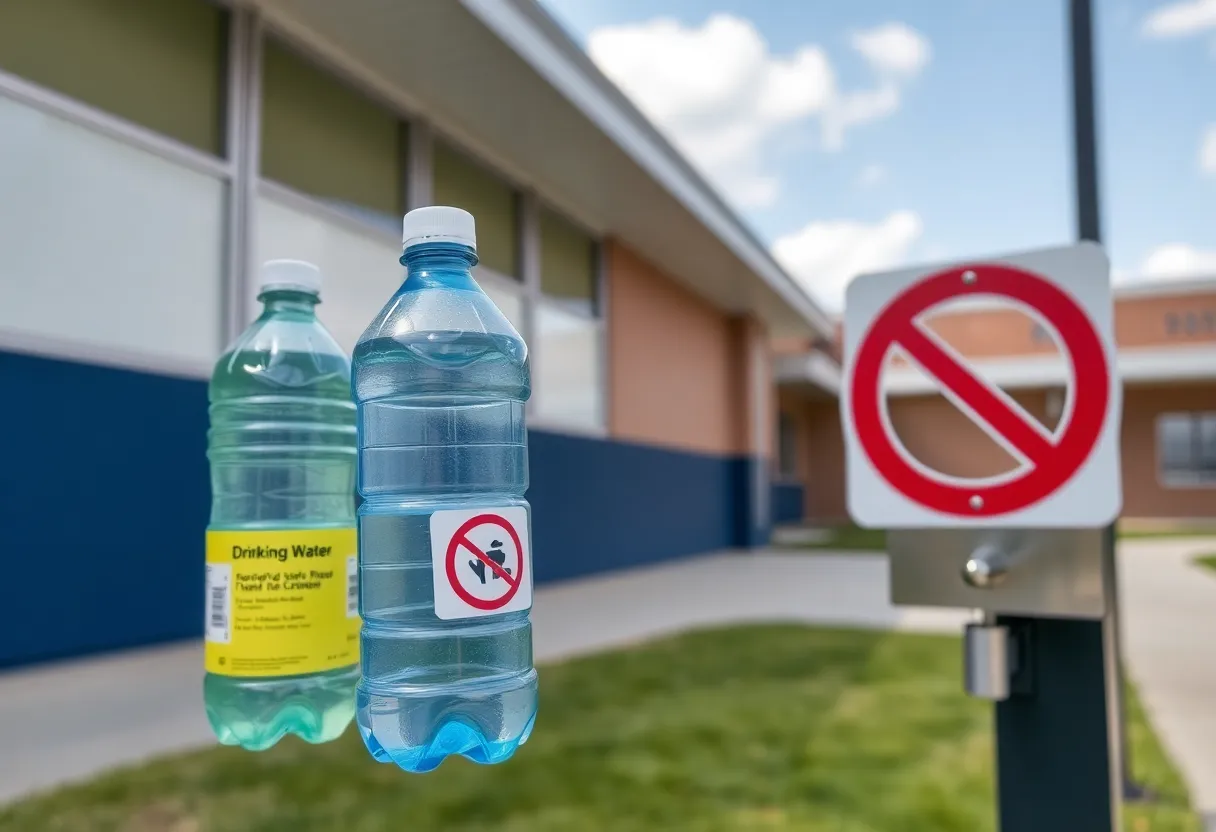News Summary
Asheville is recovering from Hurricane Helene’s devastation, with the city making progress amid challenges. Federal funding is pending verification, while local leaders focus on community needs and tourism revival.
Asheville Faces Recovery Challenges Post-Hurricane Helene
Asheville, North Carolina, is currently on the path to recovery after suffering extensive damage from Hurricane Helene, which hit the region last year. The hurricane brought significant flooding, resulting in severe destruction to buildings, parks, and roads, as well as a disruption of water, power, and communications services.
Mayor Ester Manheimer has announced that Asheville has made considerable progress in its recovery efforts, but challenges remain for the city and its residents. The impact of Hurricane Helene was felt statewide, with North Carolina suffering an estimated $60 billion in damages, making it one of the hardest-hit areas in the Southeast.
In the aftermath of the disaster, nearly $900 million in funding from the Federal Emergency Management Agency (FEMA) has been designated for household and public assistance across North Carolina. However, despite the approval of some funds, they will not be available for use until Asheville’s management practices are verified by the U.S. Department of Housing and Urban Development (HUD). Local leaders have been in ongoing discussions with HUD to ensure compliance and to facilitate the efficient utilization of these recovery funds.
A revised recovery plan for Asheville has received authorization from HUD, allowing the city to access over $200 million in federal funding. This plan includes allocations for critical areas such as infrastructure repair, economic revitalization, housing, and public services. Community members and local businesses are generally hopeful as reconstruction and development efforts begin to take shape.
Though there are signs of positive recovery, such as the recording of over 186,000 hotel bookings in March, indicative of pre-storm tourism levels, many residents are left contemplating their future. Some have decided between rebuilding their homes and taking part in buyout programs offered by the state. The economic toll from the hurricane manifested as a spike in the unemployment rate in Asheville, which reached approximately 6%. This situation has forced numerous independent restaurants to either close permanently or remain shut.
Moreover, an alarming trend emerged post-hurricane: reports reveal that less than 15% of eligible households in North Carolina applied for available federal assistance. This has raised concerns among local leaders, who are now focusing on ensuring that vulnerable residents receive the help they need.
Amidst this struggle, community solidarity shone brightly, with local residents demonstrating compassion and providing aid to those in dire situations. Nonetheless, discussions about the potential for gentrification during the recovery process are vital, as city officials strive to balance revitalization efforts with the need to protect existing community dynamics.
To bolster tourism, city officials are actively promoting nearby urban areas, hoping to attract visitors back to Asheville. Projects focusing on community enhancements, like the French Broad Riverfront Parks Recovery project, are integral to this revitalization initiative.
As recovery efforts persist, the resilience exhibited by the Asheville community offers a ray of hope. The commitment to rebuilding both infrastructure and community ties is evident as local leaders work collaboratively to ensure that the recovery process aligns with the needs of the residents. Despite the hurdles that still lie ahead, Asheville is making steady strides towards creating a stronger and more united community in the post-Hurricane Helene landscape.
Deeper Dive: News & Info About This Topic
HERE Resources
Asheville’s Culinary Scene Welcomes New Restaurants and Events
Asheville Hosts New AC Hotel by Marriott
Asheville Rides Transit to Fully Resume Services
Microsoft Updates the ‘Blue Screen of Death’ to Black
UNC Asheville Launches Access Initiative for Free Tuition
Dr. Jeremy R. Gibbs Appointed Principal of SILSA
Asheville Tourists Defeat Bowling Green Hot Rods 7-4
Exploring Asheville’s Gilded Age Heritage at the Biltmore Estate
Oscar Wong, Pioneer of Asheville Craft Beer, Passes Away
Asheville on the Road to Recovery After Hurricane Helene
Additional Resources

Author: STAFF HERE ASHEVILLE WRITER
The ASHEVILLE STAFF WRITER represents the experienced team at HEREAsheville.com, your go-to source for actionable local news and information in Asheville, Buncombe County, and beyond. Specializing in "news you can use," we cover essential topics like product reviews for personal and business needs, local business directories, politics, real estate trends, neighborhood insights, and state news affecting the area—with deep expertise drawn from years of dedicated reporting and strong community input, including local press releases and business updates. We deliver top reporting on high-value events such as the Asheville Bread Festival, LEAF Festival, and mountain sports tournaments at Biltmore Estate. Our coverage extends to key organizations like the Asheville Area Chamber of Commerce and Explore Asheville Convention & Visitors Bureau, plus leading businesses in hospitality and brewing that power the local economy such as the Biltmore Estate and Sierra Nevada Brewing Company. As part of the broader HERE network, including HERECharlotte.com, HEREGreensboro.com, HERERaleigh.com, and HEREOBX.com, we provide comprehensive, credible insights into North Carolina's dynamic landscape.





